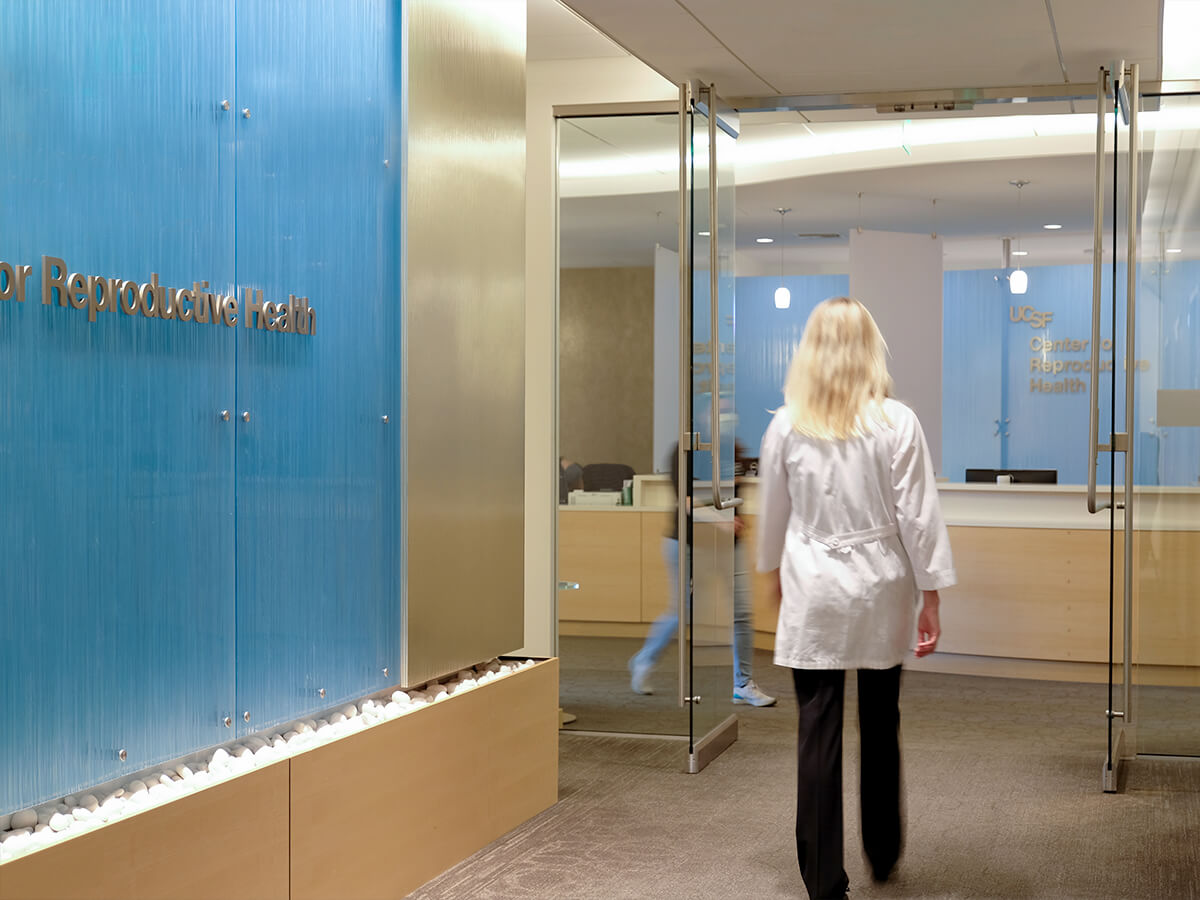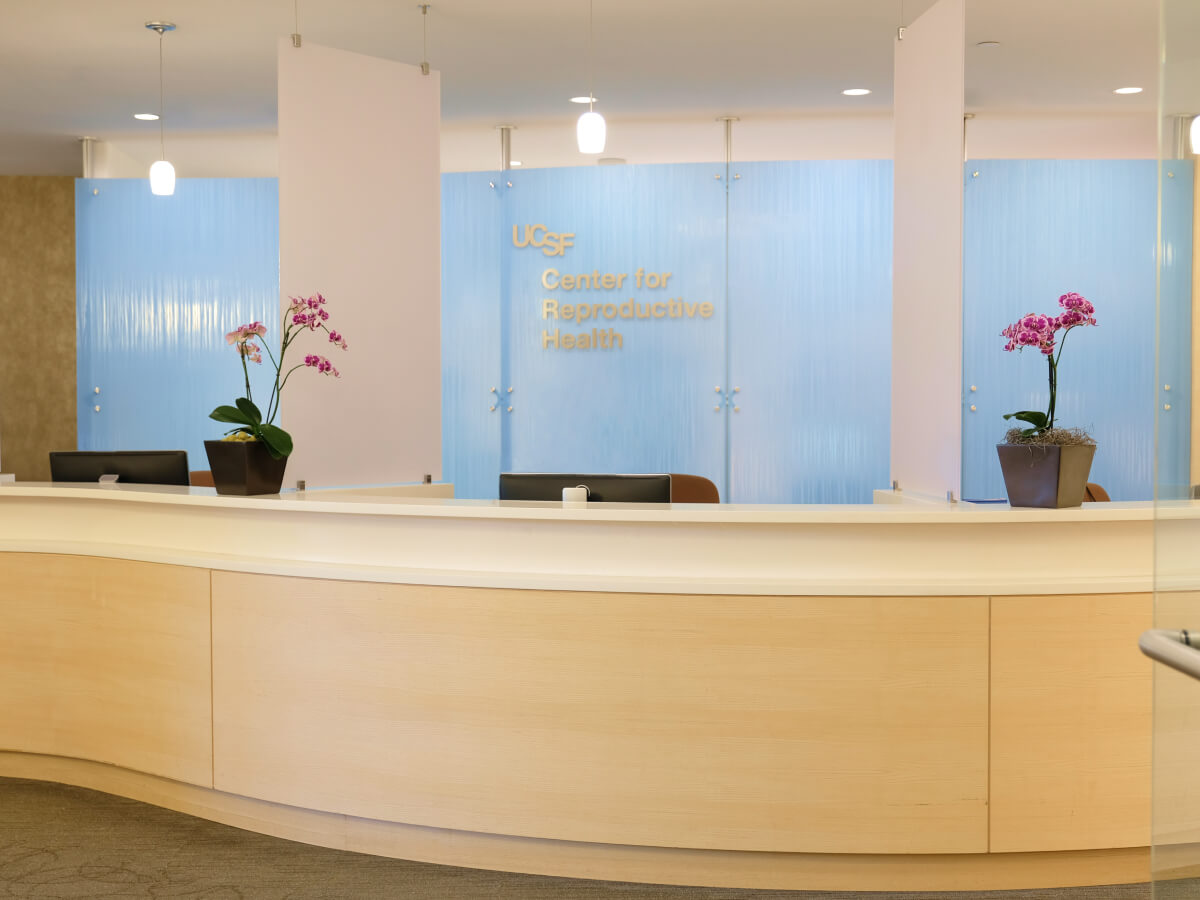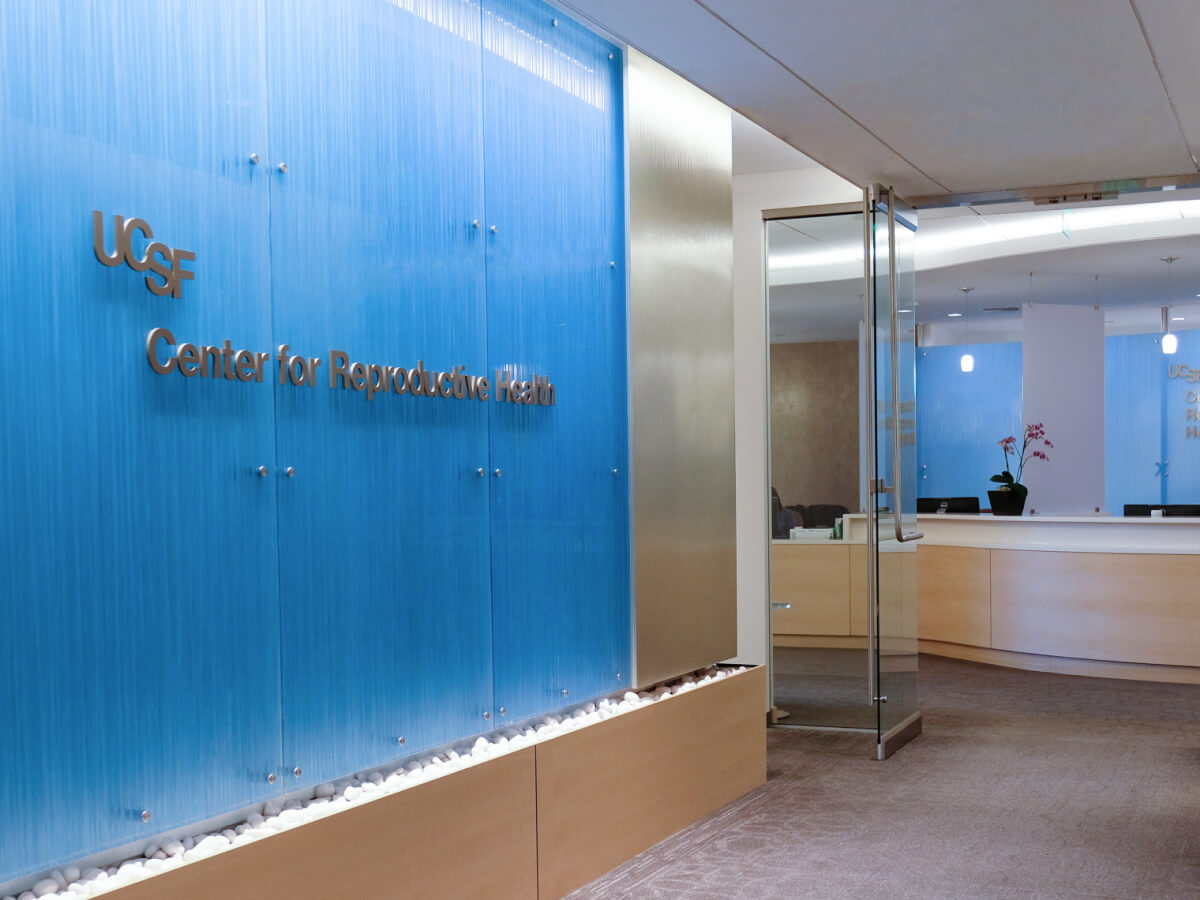Visit us in San Francisco
Academic standards. Pioneering research. Personalized care. Start your journey at the UCSF Center for Reproductive Health, located in Northern California's San Francisco Bay Area.
We are currently booking new patient appointments. Please fill out our form to get started.
The Center for Reproductive Health offers next-generation care at any stage of your fertility journey. We combine a transformational research program with compassionate patient care to change lives and to grow families.
Our treatments and services are designed to be comprehensive and inclusive–from IVF to third party family building. Learn more about each area of our care.
UCSF Center for Reproductive Health provides one of the most comprehensive ranges of fertility treatments in the Bay Area. Patients have access to in vitro fertilization (IVF), intracytoplasmic sperm injection (ICSI), intrauterine insemination (IUI), ovulation induction, preimplantation genetic testing (PGT), reproductive surgery for both male and female conditions, LGBTQ+ family-building and fertility care, and third-party reproduction such as sperm donation, egg donation, and gestational surrogacy. For those who want to plan ahead, fertility preservation services—including egg freezing and embryo freezing—are also available. With individualized treatment plans, UCSF’s specialists tailor care to meet the unique medical and personal needs of each patient or couple.
Most people consider seeing a fertility specialist if they have been trying to conceive without success for a certain amount of time. For women under 35, that time frame is typically one year. For women 35 and older, experts recommend seeking help after six months of trying. Patients with known reproductive health conditions—such as endometriosis, polycystic ovary syndrome (PCOS), irregular ovulation, or male factor infertility—may benefit from earlier consultation. UCSF Center for Reproductive Health also welcomes individuals and couples who are interested in family building through donor eggs, donor sperm, or surrogacy, even if infertility is not a concern.
Fertility evaluation at UCSF includes a variety of diagnostic tests designed to uncover potential barriers to conception. These may involve ovarian reserve testing to assess egg supply, hormone blood tests, genetic screening, and imaging tests such as a hysterosalpingogram (HSG), FemVue, or saline infusion sonogram (SIS/SAS) to evaluate the uterus and fallopian tubes. Male partners often undergo semen analysis, and additional testing can be ordered if concerns about sperm count, motility, or morphology arise. Together, these tests provide a clearer picture of reproductive health and help doctors recommend the most effective treatment plan.
Both IVF and IUI are proven fertility treatments, but they work in very different ways. Intrauterine insemination (IUI) is a less invasive procedure in which sperm is washed and placed directly into the uterus around the time of ovulation. It is often one of the first steps in treatment, especially for mild male factor infertility or unexplained infertility. In vitro fertilization (IVF), on the other hand, involves stimulating the ovaries to produce multiple eggs, retrieving them, and fertilizing them in a laboratory. The resulting embryos are monitored for several days before one or more are transferred to the uterus. IVF can be more effective in cases of blocked fallopian tubes, diminished ovarian reserve, severe male infertility, or when earlier treatments have not succeeded.
Yes. UCSF Center for Reproductive Health provides comprehensive evaluation and treatment for male infertility. This includes semen analysis to measure sperm count and quality, referrals to male reproductive urologists when needed, male reproductive surgery, and advanced laboratory techniques such as ICSI to help overcome severe male factor infertility. Donor sperm services are also available for individuals and couples who choose this route. By combining expertise in both male and female reproductive health, UCSF ensures that individuals and couples receive a coordinated and thorough approach to family building.
Fertility preservation has become an important part of reproductive medicine, and UCSF offers several options to protect future family-building potential. Egg freezing and embryo freezing are available to individuals who want to delay parenthood for personal or medical reasons. Oncofertility services are offered for patients diagnosed with cancer who wish to preserve eggs, sperm, or embryos before beginning treatments such as chemotherapy or radiation. These services are time-sensitive, and UCSF specialists work quickly with oncology teams to ensure that fertility preservation can be accomplished without delaying cancer care.
UCSF Center for Reproductive Health offers genetic counseling and testing to help reduce the risk of inherited conditions. Preimplantation genetic testing (PGT) can be performed on embryos created through IVF to screen for chromosomal abnormalities or specific genetic disorders before transfer. This testing provides additional information for patients who may have a family history of genetic disease, advanced maternal age, or recurrent pregnancy loss. Genetic screening and counseling are also available before conception to help individuals and couples make informed choices about their reproductive options.
The cost of fertility treatment varies depending on the type of care required, the complexity of the case, and whether multiple cycles of treatment are needed. UCSF provides detailed financial counseling to help patients understand anticipated costs and what portion may be covered by insurance. The financial team can also explain options for payment plans and discuss programs that may make care more affordable. Since insurance coverage for fertility care can vary widely, patients are encouraged to review their benefits early in the process and connect with UCSF’s financial counselors for guidance.
Yes. UCSF Center for Reproductive Health is proud to provide inclusive fertility care for LGBTQ+ individuals and couples. Services include donor sperm, donor eggs, gestational surrogacy, and reciprocal IVF, which allows both partners in a same-sex female couple to participate in the conception process. UCSF also offers fertility preservation and family-building services for transgender individuals before or after gender-affirming treatment. Every patient receives compassionate, personalized care in a supportive environment that honors their family-building goals.
Academic standards. Pioneering research. Personalized care. Start your journey at the UCSF Center for Reproductive Health, located in Northern California's San Francisco Bay Area.
Academic standards. Pioneering research. Personalized care. Start your journey at the UCSF Center for Reproductive Health, located in Northern California's San Francisco Bay Area.






